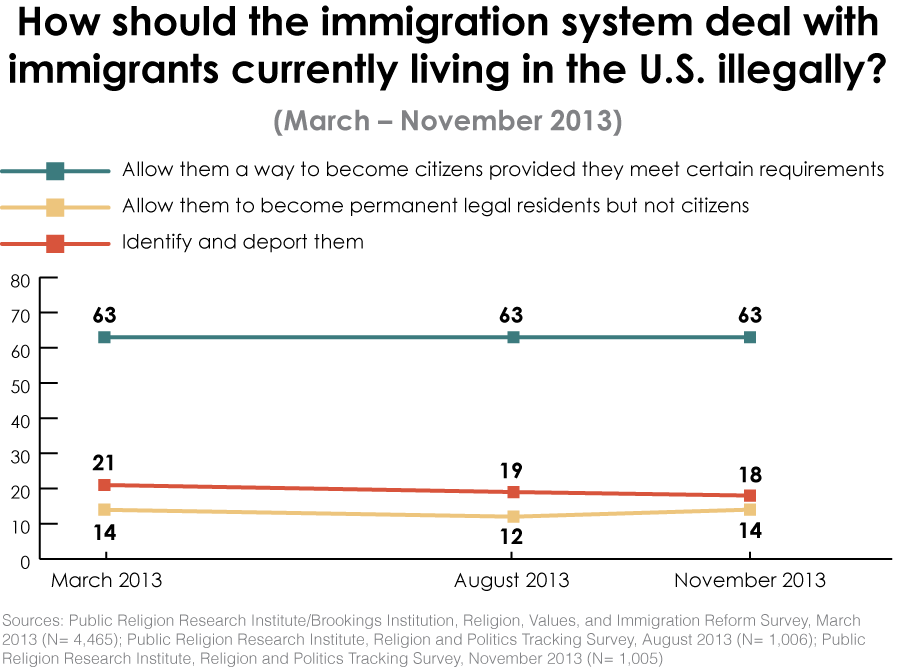Following the release of a set of principals to guide immigration reform by GOP leaders last week, President Obama indicated Friday that he’d be open to a bipartisan approach that might not include a new path to citizenship, as outlined in the bill passed by the U.S. Senate last June, for the estimated 11  million immigrants currently living in the United States illegally. However, the president reiterated that he did not support any plan that would create “two categories of people in this country—folks who are full-fledged citizens and folks who are not.” Just how bumpy the road ahead will be depends on whether the Republican principles stop short of guaranteeing some path to citizenship, even if it is not a new path to citizenship.
million immigrants currently living in the United States illegally. However, the president reiterated that he did not support any plan that would create “two categories of people in this country—folks who are full-fledged citizens and folks who are not.” Just how bumpy the road ahead will be depends on whether the Republican principles stop short of guaranteeing some path to citizenship, even if it is not a new path to citizenship.
One key question is whether the public, and particularly rank-and-file Republicans, prefer a plan that does not include citizenship. PRRI’s most recent immigration survey, conducted in November, gave Americans the opportunity to weigh in. Given a choice between a path to citizenship, permanent legal resident status but no citizenship, and deportation, PRRI found that just 14 percent of Americans favor the middle option, allowing immigrants currently living in the United States illegally to become permanent legal residents but not citizens. By contrast, a clear majority (63 percent) favor providing a way for these immigrants to become citizens provided they meet certain requirements. Only 1-in-5 (18 percent) favor a policy that would identify and deport all immigrants living in the United States illegally.
Those favoring a path to citizenship include majorities of every political and religious group. Roughly 6-in-10 Republicans (60 percent) and independents (57 percent) and approximately 7-in- 10 (73 percent) Democrats favor a path to citizenship for immigrants currently living in the United States illegally. And majorities of white evangelical Protestants (55 percent), white mainline Protestants (60 percent), Catholics (62 percent), minority Protestants (69 percent), and the religiously unaffiliated (64 percent) also favor a path to citizenship for immigrants currently living in the United States illegally.
Majority support among Americans for offering a path to citizenship to immigrants currently living in the country illegally remained unchanged in November from earlier in the year. In both March and August 2013, an identical number (63 percent) supported a path to citizenship for immigrants currently living in the United States illegally while similarly low numbers of Americans expressed support for allowing immigrants living in the United States illegally to become permanent legal residents but not citizens (14 percent and 12 percent, respectively).
What do you think is the best way to address immigration reform, and do you feel politicians’ efforts to compromise will solve the issue? Let us know in the comments.